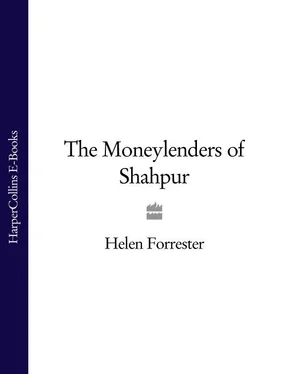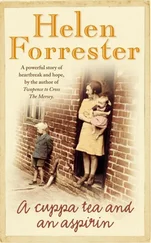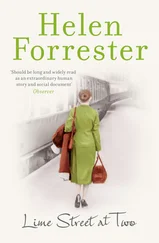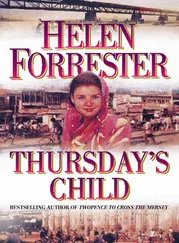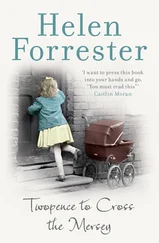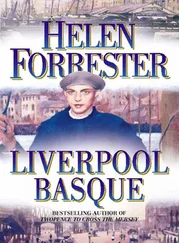‘Perhaps eldest aunt from Baroda could inquire discreetly about the horoscope,’ he said, trying to keep his face impassive.
His father looked at him penetratingly. Mahadev seemed set upon this woman, and he himself was very anxious to see him safely married. Mahadev was his favourite son; in comparison, his younger son was a dunderhead – and the boy’s wife was an avaricious shrew. He wondered what kind of a temperament Anasuyabehn had; something about her evidently pleased his son.
‘Have you spoken to this girl?’
‘No, father.’
‘Have you seen her?’
‘Yes, father. Many times since childhood. She used to go to a school near the Red Gate and I would see her getting off the bus at the flower bazaar with the other girls.’
‘Hm,’ murmured his father, thinking that young men did not change much from generation to generation. ‘I’ll consult your uncles.’
The elder man waved his hand in dismissal, and Mahadev knew intuitively that he had won. He got up from the mattress on which he had been sitting, bowed and made for the door.
‘Wait,’ said his father, and Mahadev turned apprehensively.
‘You realize that a man in your position can choose almost any girl in our caste – parents would happily approve of you.’ He paused, and then went on, ‘You should consider this carefully, for I do not know whether the Mehtas will be so happy. Dean Mehta presumably has had other offers for his daughter.’
Mahadev, secure in his family’s financial empire, had never thought of being snubbed by Dean Mehta and he was nonplussed for a moment, and then said, ‘Would Baroda aunt cause inquiry to be made on this point first?’
He is quite determined, thought his father fretfully. I should be firmer about it – and yet the other boy is very unhappy with his witch of a wife.
‘Very well,’ he said grudgingly. ‘Here, take these photographs and have another look at them – you might change your mind about one of them – Baroda aunt’s young sister-in-law looks quite nice.’
Mahadev reluctantly took from him the half dozen or so studio portraits of prospective wives, promised to consider them and made his escape.
A man of thirty-four, who had seen the world, he fumed, should surely be allowed to choose a wife; and yet, beneath his resentment at his marriage being arranged for him, lay the knowledge that his father was being extremely patient.
He wandered into the compound, round which were ranged dwellings dating back a hundred years or more. How crowded and dirty it looked! Its smoke-blackened stone verandas with their steps hollowed out by generations of feet, its rotting woodwork, its lack of paint, depressed him. Later on – he would not admit to himself that he meant when his father and his Partner Uncle died – he would build a new Society in a more salubrious neighbourhood, and leave this compound to his brother.
Now that India had settled down after the horrors of 1947, others, less rich than he was, had moved out; he would, too. He sighed, and looked at his watch. Time to go into the office and relieve his brother.
In the gloomy, dusty office, his brother was haggling superbly with a rather cowed local landowner about a loan against his next crop. Mahadev went to stand quietly by him.
His father might consider Younger Brother dull and commonplace, but Mahadev was fond of him and felt he would make an excellent junior partner, completely reliable in all routine matters, and, as far as the family was concerned, painstakingly honest. It was a pity that his father was so hard on him.
Gradually, Mahadev was drawn into the argument, and in a very short time he was engrossed in squeezing a higher interest rate out of their client.
The would-be brides soon had an account book banged down upon their neatly photographed features – and were forgotten.
Anasuyabehn’s widowed aunt had made her home with her brother and his daughter because she had no sons and disliked the idea of living with one of her brothers-in-law. She had constantly berated the old scholar about his neglect of his daughter in respect of finding a husband for her. The only reply she had been able to obtain from him had been, ‘We should wait a full two years from the time of her betrothed’s death – it is not judicious to hurry the girl.’
As a result of this, Aunt had almost given up hope of ever seeing her niece married, since the older a girl became the harder it was to marry her off. Aunt felt that her own abilities as a matchmaker were simply withering away.
She had, therefore, been delighted when, by devious routes, it was made known to her that the Desais would make an offer for Anasuyabehn, if they could be sure of not being snubbed. This was an opportunity which could not be ignored, a real test of her matchmaking skills, which would benefit dear Anasuyabehn immeasurably. She consulted nobody, but assured the lady from whom this indication had come that such an offer would be well received. She was overwhelmed by the idea of being the instrument by which such a wealthy alliance could be brought about; it would crown all her previous successful efforts on behalf of other relations. After this, all her female relations with children to marry off would crowd about her, begging her favours on behalf of their offspring. Her thin, hooked nose quivered at the anticipation of her future importance in the family.
She conveniently forgot the difference in caste. She thought only of the Desai bank balance and willingly became the mediator between the two fathers. Two other offers for Anasuyabehn from the parents of poverty-stricken scholars were left to die from neglect on her part.
When she first broached the subject, Dean Mehta looked up from his book, said flatly, ‘No,’ and returned to his studies.
Undeterred, she continued to sit in front of him, chewing her thumb. He again glanced up, and added, ‘I’ll advertise for a husband for her in early spring.’
‘The girl is already twenty-four years old.’
‘I know, I know,’ said the Dean testily, ‘but Desai is not a Mehta.’
‘He’s near enough,’ said his sister, ‘and he’s rich, healthy and in love with her. What more could we want in these changed times?’
‘Does Anasuyabehn know Mahadev?’ asked the Dean suspiciously. It would, he thought, be quite easy for her to carry on an intrigue without his knowledge – after all, she occasionally went shopping or to visit a friend by herself.
‘No,’ said Aunt decisively. ‘Someone would have seen her and told me, if she had ever spoken to him.’
The Dean sat silently at his desk for a few minutes, staring out of the heavily-barred window and idly twiddling his fountain pen. He reviewed carefully all he knew of the recent history of the Desais, the hints he had heard of their holdings in many new enterprises, their influence amongst Government officials, Mahadev’s travels. At last he said, ‘Discuss the Desais with Anasuyabehn. She’s old enough to be consulted.’
His sister hid her satisfaction at this reply, and merely said, ‘All right.’
Her bare feet made a soft brushing sound on the stone floor as she shuffled off to the kitchen, ostensibly to consult Anasuyabehn.
The Dean continued to think about the Desais. Except on grounds of caste, there could be no reasonable objection to the match, and for years he had been preaching that Jainism had originally been a revolt of the Kshatriya military caste against their overbearing Brahmin priests; there was no caste among the original Jains. Young Desai was reasonably educated, had a good, though old, house and was certainly rich; his trips to Europe would have broadened his outlook and, indeed, these days, the family seemed to be financiers and jewellers rather than orthodox moneylenders.
Читать дальше
